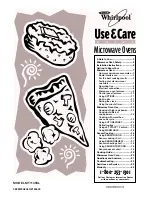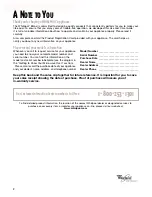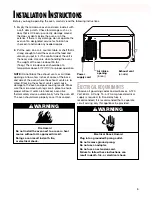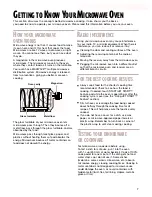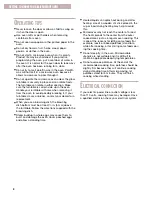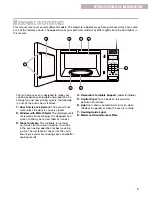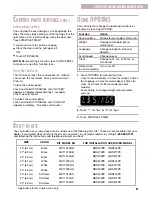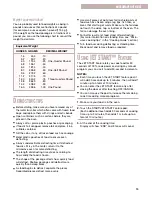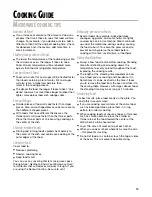
13
M
ICROWAVE
O
VEN
U
SE
This section gives you instructions for operating each function. Please read these instructions carefully.
C
OOKING AT HIGH COOK POWER
1. Put the food in the oven and close the door.
2. Touch COOK TIME.
Display will show “STAGE 1.”
3. Touch number pads for desired time.
For example, for 10 minutes touch “1 0 0 0”
4. Touch START/JET START.
5. At the end of the cooking time:
Display will show “END” and 3 tones will sound.
continued on next page
C
OOKING AT DIFFERENT COOK
POWERS
1. Put your food in the oven and close the door.
2. Touch COOK TIME.
Display will show “STAGE 1.”
3. Touch number pads for desired time.
4. Touch COOK POWER.
5. Select number pad for desired power setting.
(See the following chart.)
6. Touch START/JET START.
7. At the end of the cooking time:
Display will show “END” and 3 tones will sound.
For best results, some recipes call for different cook powers. The lower the cook power, the slower the
cooking. Each level stands for a different percentage of cook power. Many microwave cookbook recipes tell
you by number, percent, or name which cook power to use.
The following chart gives the percentage of cook power each level stands for, and the cook power name usually
used. It also tells you when to use each cook power. Follow recipe or food package instructions if available.
NOTE: Refer to a reliable cookbook for cooking times.
NAME
High
Medium-High, Reheat
COOK POWER
P100-HI = 100% of full
power (automatic)
P90 = 90% of full power
P80-RHT = 80% of full
power
P70 = 70% of full power
P60 = 60% of full power
WHEN TO USE IT
•
Quick heating many convenience foods and foods
with high water content, such as soups, beverages
and most vegetables
•
Cooking small tender pieces of meat, ground meat,
poultry pieces, and fish fillets
•
Heating cream soups
•
Heating rice, pasta, or stirrable casseroles
•
Cooking and heating foods that need a cook power
lower than high (for example, whole fish and meat loaf)
•
Reheating a single serving of food
•
Cooking sensitive foods such as cheese and egg
dishes, pudding, and custards
•
Cooking non-stirrable casseroles, such as lasagna

